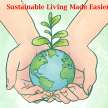The Rich Poor Paradox
How High Income Lifestyle Inflation Can Keep You Financially Strapped”

The phenomenon known as “high income lifestyle inflation” describes the propensity of individuals to boost their expenditure in proportion to an increase in their level of income. It is a trap that many people, especially those who are deemed to be “poor rich,” that is, persons who earn a high income but are unable to save or invest enough money to achieve financial security, fall prey to.
This is a frequent situation that many people find themselves in. The problem of high income lifestyle inflation can be particularly detrimental for these individuals because it can result in emotions of stress and discontent and erode their wealth. Additionally, it can cause their wealth to deteriorate.
When people increase their income, they frequently get the impression that they can afford to purchase more pricey items and adopt a more affluent way of life. This may involve purchasing a more spacious home, a more elegant automobile, or going on more luxurious holidays.
In addition, many individuals have the mentality that they need to keep up with the spending habits of their colleagues or the people in their immediate environment. Though people in our immediate environment are purchasing more expensive items, we may feel tempted to do the same, even if we may not have the financial means to do so.
However, people might unintentionally build a lifestyle that demands a greater salary to maintain if they spend more money on these things. This can happen when they buy more expensive items. To put it another way, they have upped their standard of living, which means that they are now spending more money than they used to on things that they previously regarded as being luxuries.
This can make it difficult to save or invest money, making it tough to become truly affluent. Consequently, this can make it difficult to accumulate wealth. Even if they are able to keep their current level of income, they will have a tough time making progress in their financial situation due to the fact that the increasing cost of living will absorb the majority of their earnings.
People who have a high salary but are unable to save or invest enough of it to achieve financial security might be considered “poor wealthy.” This is because they have a high income but are unable to put away enough money to do so. This indicates that individuals are susceptible to unforeseen monetary shocks, such as the loss of a job or an unanticipated medical emergency, both of which have the potential to rapidly deplete their wealth.
Additionally, emotions of stress and unhappiness might be brought on by the perception that one is unable to save or invest money. Even though they may have a high salary, they may not feel financially secure or in control of their money, which can have a detrimental impact on their overall well-being. Even though they may have a high income, they may not feel financially secure or in control of their finances.
It is vital to be careful of one’s spending habits and to maintain a lifestyle that is sustainable in order to avoid slipping into the trap of high income lifestyle inflation. This can be avoided by maintaining a sustainable lifestyle.
This may entail developing a financial plan, which includes a budget, a list of wasteful expenditures, and a strategy for reducing those costs as well as saving and investing money. Rather of concentrating just on the pleasure that will be experienced in the immediate future as a result of purchasing something new, it is essential to take into account the effects that decisions regarding spending will have in the long run.
In addition, it may be helpful to reflect on the reasons behind the spending decisions and try to understand what underlying emotions are motivating them.
For example, the need to feel successful or the need to keep up with the Joneses are two examples of underlying emotions that may be driving spending decisions. Individuals can begin to make more conscious spending decisions that are in alignment with their beliefs and long-term financial goals if they have a knowledge of the emotions that lie beneath the surface.
In addition, rather of relying entirely on material items to make you feel successful or to connect with people, it could be a good idea to look into other avenues to achieve these goals. Volunteering, taking part in community events, or pursuing hobbies and interests are all examples of activities that fit into this category.
In conclusion, high income lifestyle inflation is a phenomenon that can have a negative impact on the individual’s financial well-being, particularly for those individuals who are deemed to be “poor wealthy.” Individuals are able to regain control of their financial situation and enhance their overall wellbeing if they have a better understanding of the mechanisms of high income lifestyle inflation and if they take actions to avoid it.
It is crucial to establish a budget, identify and minimize unnecessary purchases, build a plan for saving and investing money, and also make an effort to reflect on the underlying emotions that inspire spending decisions and make an effort to find alternate ways to feel the same emotions.
About the Creator
Estalontech
Estalontech is an Indie publisher with over 400 Book titles on Amazon KDP. Being a Publisher , it is normal for us to co author and brainstorm on interesting contents for this publication which we will like to share on this platform






Comments
There are no comments for this story
Be the first to respond and start the conversation.